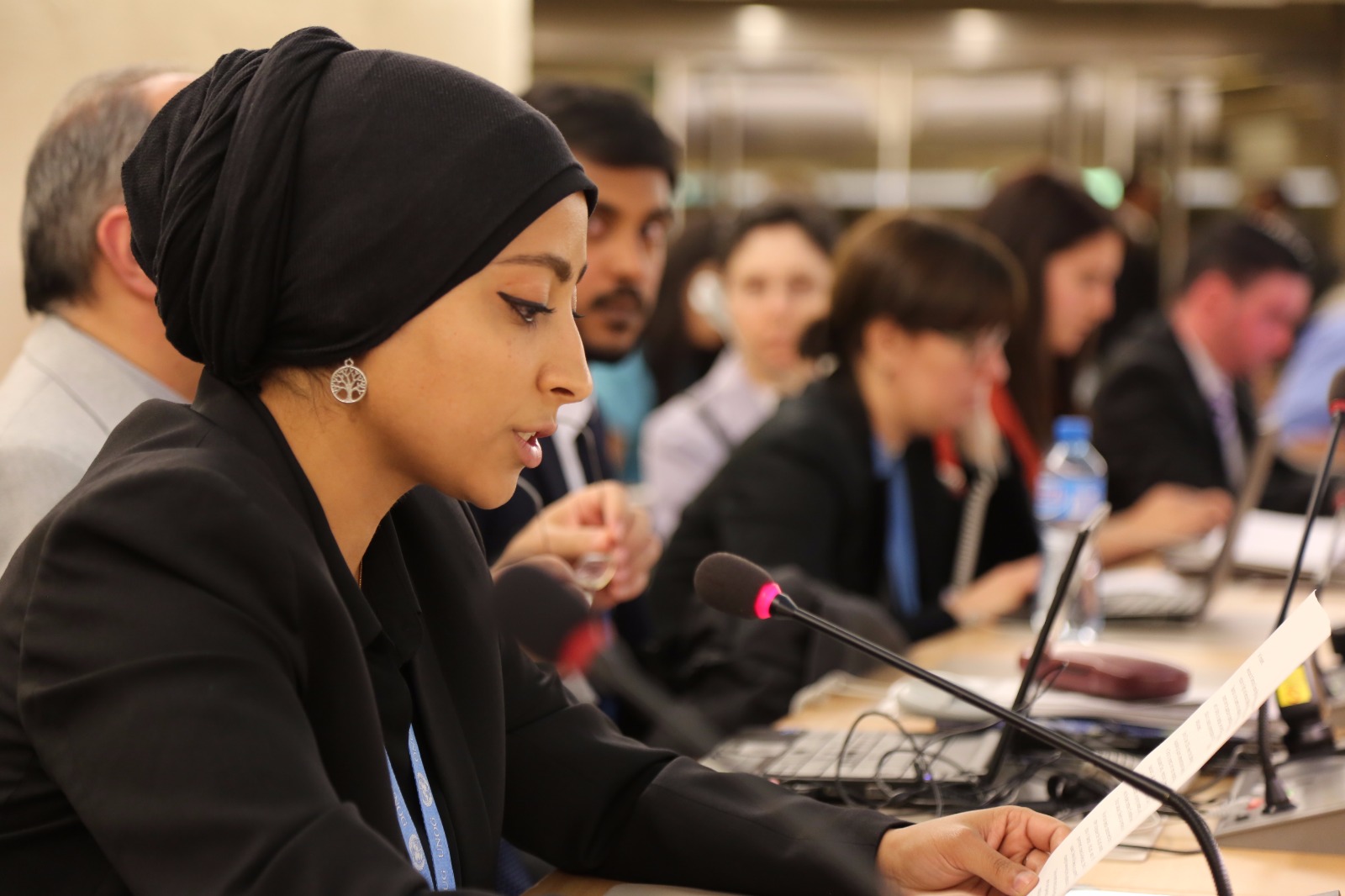On 7 June 2017 during the 35th session of the Human Rights Council, Maryam al-Khawaja delivered an oral intervention on behalf of ADHRB and BIRD during the Item 2 Dialogue with the Special Rapporteur on free assembly and association. In her intervention, she raised the Bahraini government’s violent raid on the peaceful protesters in the village of Duraz as well as the dissolution of Wa’ad political society. Please continue reading for the full text of al-Khawaja’s remarks, or click here for a PDF.
Mr. President,
Americans for Democracy & Human Rights in Bahrain together with the Bahrain Institute for Rights and Democracy (ADHRB and BIRD) would like to thank the Rapporteur on free assembly and association for your report. We share your concerns over the suppression of peaceful assembly and association around the world. In Bahrain, for example, we are particularly disturbed by the intensified attacks on a peaceful demonstration in Diraz and the dissolution of the Wa’ad political society.
Since 20 June 2016, when the Bahraini government arbitrarily denaturalized Ayatollah Isa Qassim, demonstrators have held a peaceful sit-in around his home in Diraz to protect him from deportation. In response, the authorities have blockaded Diraz, restricting freedom of movement and imposing internet blackouts. Last month, security forces, together with the National Security Agency, violently raided the sit-in to disperse the protesters, killing five demonstrators, injuring hundreds, and arresting at least 286. One of those killed was the older brother of another demonstrator shot dead in an earlier attack on Diraz in January. Sheikh Isa remains under effective house arrest.
We are also deeply concerned that, on 31 May, a court upheld the government’s order to dissolve the Wa’ad society, Bahrain’s largest secular, leftist opposition group in Bahrain. Wa’ad was the last major opposition group after the government closed Al-Wefaq, the largest political society, last year. Al-Wefaq’s leader, Sheikh Ali Salman, is currently imprisoned, serving a four-year sentence on charges stemming from a political speech.
These recent physical and legislative assaults on free assembly and association – which are guaranteed under articles 19 and 21 of the ICCPR – threaten to further destabilize Bahrain. We would like to ask the Rapporteur: what best practices do you recommend to governments for fully respecting the rights to free assembly and association without reverting to heavy-handed security measures in the name of public order?
Thank you.





